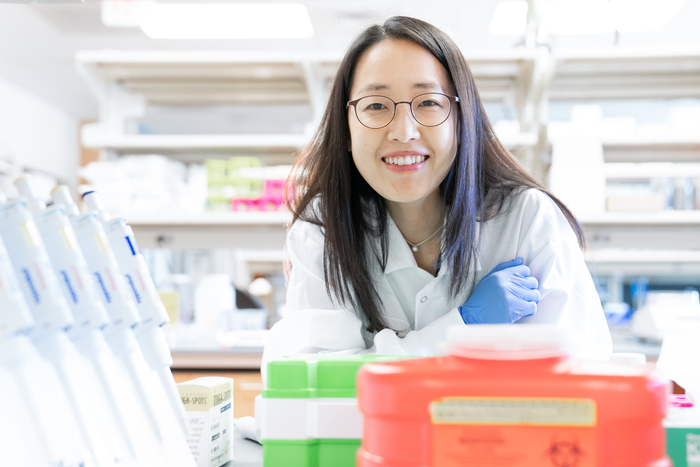Eliminating your favorite treats could make your brain want them even more, according to a Virginia Tech scientist.

Credit: Clayton Metz/Virginia Tech
Eliminating your favorite treats could make your brain want them even more, according to a Virginia Tech scientist.
Sora Shin, assistant professor at the Fralin Biomedical Research Institute at VTC, has been awarded a five-year, $2 million National Institutes of Health grant to examine the brain circuit likely to be responsible for high-fat diet overconsumption after a period of avoiding highly craved foods.
According to the World Health Organization, more than a billion people worldwide are obese, and the number is increasing. The primary culprit contributing to this global public health crisis: the availability of too many low-cost, appetizing, and calorically dense treats.
“Overeating palatable foods such as cake, potato chips, and ice cream is a major public health problem leading to obesity,” Shin said.
With support from the National Institute of Diabetes and Digestive and Kidney Diseases, Shin’s laboratory at the Fralin Biomedical Research Institute aims to identify the brain pathways responsible for high-fat diet relapse by studying the leptin-responsive circuit that connects the brain’s lateral hypothalamus to the brain stem.
Leptin is a hormone that assists in the maintenance of body weight over a long period of time through its interaction with the hypothalamus – a brain region that is responsible for self-regulating processes, such as body temperature, thirst, and hunger.
During preliminary research in mouse models, Shin discovered that after exposure to a high-fat diet, the mice not only selected high-fat foods when given the choice over their normal diet, but they also ate too much after a period of not having it.
Many individuals who achieved a successful diet show high rates of relapse to a high-fat diet and overeating, according to Shin. Her new research study addresses a core issue in preventing diet relapse after abstinence.
“Our study is significant, because for the first time we will have an important framework for clarifying how the leptin-responsive brain circuit responds to high-fat food exposure, and how that interaction increases the risk of emotional overeating following a period of abstinence,” Shin said.
Shin, who is also an assistant professor in the Department of Human Nutrition, Foods and Exercise in the College of Agriculture and Life Sciences, is principal investigator on a team that also includes In-Jee You, research associate at the Fralin Biomedical Research Institute, and Yeeun Bae, graduate student in the Department of Human Nutrition, Foods, and Exercise at Virginia Tech. Shin is an iTHRIV Scholar, part of the integrated Translational Research Institute of Virginia.




